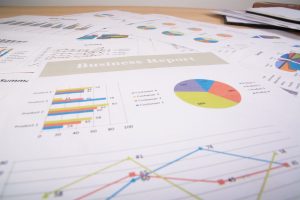Recent developments suggest that current U.S. economic policies could be setting the stage for another significant financial downturn, raising concerns among economists and investors alike.
Over the past few years, the U.S. economy has experienced periods of growth, but underlying vulnerabilities remain. Critics argue that some policies enacted during the Trump administration may have contributed to these vulnerabilities by encouraging risky financial behaviors and increasing national debt.
The focus now turns to specific actions taken by the current administration, which some analysts believe could exacerbate financial instability. These actions include deregulation efforts, tax policies favoring corporations, and a reluctance to address mounting national debt levels, which could weaken the economy’s resilience in the face of future shocks.
Investors, financial institutions, and policymakers are closely monitoring these developments, as the potential for a new crisis could have widespread impacts on markets, employment, and global economic stability. The fear is that a misstep or external shock could trigger a repeat of past crises, such as the 2008 financial meltdown.
Market experts warn that unless corrective measures are taken, the risk of a significant downturn increases. Continued analysis of economic indicators and policy shifts will be crucial in the coming months to assess whether the U.S. can avoid a repeat of past financial catastrophes.
What to watch next: upcoming economic reports, legislative changes, and global market responses that could influence the trajectory of the U.S. economy.
What are the main risks to the U.S. economy today?
Major risks include high levels of national debt, deregulation policies, and global economic uncertainties, all of which could contribute to financial instability.
Can current policies lead to a repeat of the 2008 financial crisis?
Yes, if risky financial behaviors are not addressed and economic vulnerabilities are not managed properly, these policies could increase the likelihood of a future crisis.
What measures can be taken to prevent a new financial crisis?
Implementing stricter financial regulations, reducing national debt, and maintaining balanced economic policies can help mitigate risks and promote financial stability.








